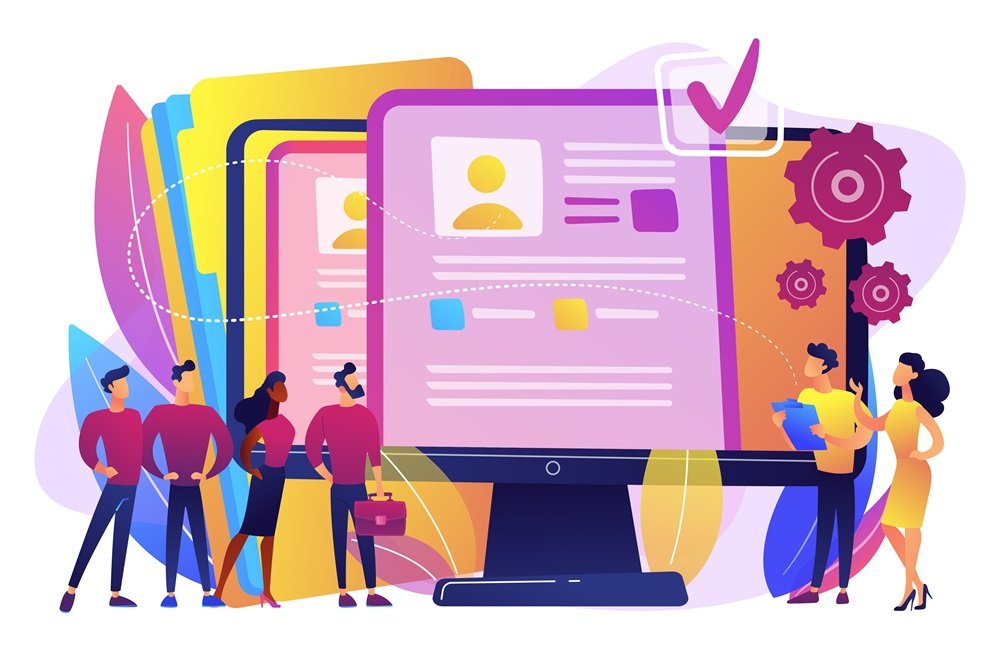In the fast-paced business environment, businesses are increasingly facing challenges in managing their workforce efficiently, staying compliant with regulations, and driving productivity in a hybrid or remote work setting. To address these growing demands, HR technology is no longer just a tool—it’s a necessity.
Among the companies making strides in this space is Beehive Software, a Mumbai-based HR tech provider that is revolutionizing the industry. Through a combination of innovative project management tools, enhanced collaboration capabilities, robust data security features, and a commitment to user experience, Beehive is transforming how organizations handle their human resources operations.
Experts in the HR technology field emphasize how modern platforms are helping businesses thrive in the face of these challenges, underscoring why adopting HR tech is crucial for long-term success.
Haresh Awatramani, CEO of Beehive Software, shares insights into how their platform is helping SMBs thrive in the face of these challenges, and why adopting HR tech is crucial for long-term success.

Inefficient Project Management and Manual Time Tracking
For many organizations, efficient project management is essential for optimal resource utilization. Many operate with limited teams, needing to track every detail to maintain productivity and control costs. Traditional manual processes for timesheets, attendance, outdoor work, comp offs, and overtime often lead to inaccuracies in project costing and payroll management.
Modern HR platforms provide a comprehensive solution by integrating timesheets and attendance tracking directly with project management. This enables automated syncing of various work types, eliminating manual entries and significantly improving accuracy in both project costing and payroll. These platforms typically offer user-friendly dashboards that allow managers to assign tasks, set deadlines, and monitor real-time progress. Employees, in turn, can log their hours against specific tasks via mobile apps, ensuring transparency and accuracy whether they’re working from the office or remotely. This seamless integration is particularly valuable for companies that don’t have the luxury of multiple teams managing different business aspects, ensuring everyone stays on track and resources are utilized efficiently.
Disjointed Collaboration for Remote and Distributed Teams
With remote work becoming a new normal for many businesses, effective collaboration and communication across distributed teams are more important than ever. Keeping remote teams aligned is a significant challenge, as fragmented communication can lead to disorganization and missed updates.
HR technology addresses this need with a suite of tools designed to facilitate seamless team interactions, ensuring that project discussions and updates happen in a centralized and organized manner. Features like a “Social HR Portal” within the platform can centralize communication, allowing teams to interact and collaborate more effectively, regardless of their physical location. Combined with a robust task management system, this empowers team members to update tasks, share project progress, and manage deadlines remotely, all while maintaining full visibility through intuitive dashboards. Technology leaders can track performance and resource utilization in real-time, helping them make informed decisions quickly and ensuring that tasks are completed on time with enhanced transparency.
Vulnerable Data Security for Resource-Limited Businesses
Data security is a top concern for any business, but it can be especially daunting for organizations that often lack dedicated IT departments or cybersecurity expertise. Sensitive HR information, including payroll, personal employee data, and performance records, is particularly vulnerable.
Leading HR tech platforms are built with a strong focus on data protection. They utilize advanced encryption techniques to secure data both when it’s stored and when it’s being transmitted. Additionally, they implement role-based access controls to ensure that only authorized personnel have access to specific data, minimizing internal risks. Such providers often undergo regular security audits and vulnerability assessments to proactively identify and mitigate any potential risks. Compliance with global data protection standards, including regulations like the General Data Protection Regulation (GDPR) and ISO certifications, is a common practice, offering organizations peace of mind when it comes to meeting regulatory requirements and safeguarding sensitive information. This allows companies to focus on growth without the constant concern of cybersecurity threats.
Complex Systems and Poor User Experience
In the competitive HR tech space, user experience plays a crucial role in the adoption and long-term success of any platform. Businesses, in particular, need systems that are easy to use and scalable, as they may not have in-house IT support to manage complex implementations or troubleshooting.
Modern HR software continually evolves its platform to provide a modern, intuitive interface. Adopting modular architectures (like those using ASP.NET Core 8 APIs) allows providers to deploy updates faster and improve system performance. This modular approach ensures that platforms can be maintained and scaled efficiently, enabling the delivery of new features without disrupting ongoing operations. A revamped, responsive user interface (UI) ensures seamless navigation and consistent workflows across both desktop and mobile devices. This focus on ease of use means organizations can get the most out of their HRMS system without needing extensive training or support, maximizing their investment.
Industry Specific HR Challenges (e.g., Manufacturing)
Beyond general HR needs, specific industries, like manufacturing (India’s second-largest economic sector), often deal with unique HR challenges. These can include managing large workforces, handling contractor payments, and complying with industry-specific regulations like the Factory Act, leading to potential productivity leakages.
HR tech solutions are strategically expanding to cater specifically to the needs of these unique industries. Platforms are developed to offer features like specialized contractor onboarding, support for productivity-based payments, and efficient overtime management. By providing HR solutions that address the specific needs of manufacturing companies, these platforms help businesses streamline their operations and avoid costly inefficiencies. This focus on aligning with national initiatives, such as the “Make in India” drive, positions HR tech as a key enabler in the digital transformation of specialized sectors, by evolving platforms and enhancing the user experience to meet precise industry demands.
Why HR Tech is an Essential Investment
By addressing these core challenges, HR technology emerges not as an optional add-on but as a critical investment for businesses. It empowers them to automate tedious processes, enhance workforce productivity, ensure data security, and adapt to evolving work models. For companies aiming to thrive in an increasingly competitive market, embracing these solutions is fundamental to achieving efficiency, compliance, and sustained growth.









